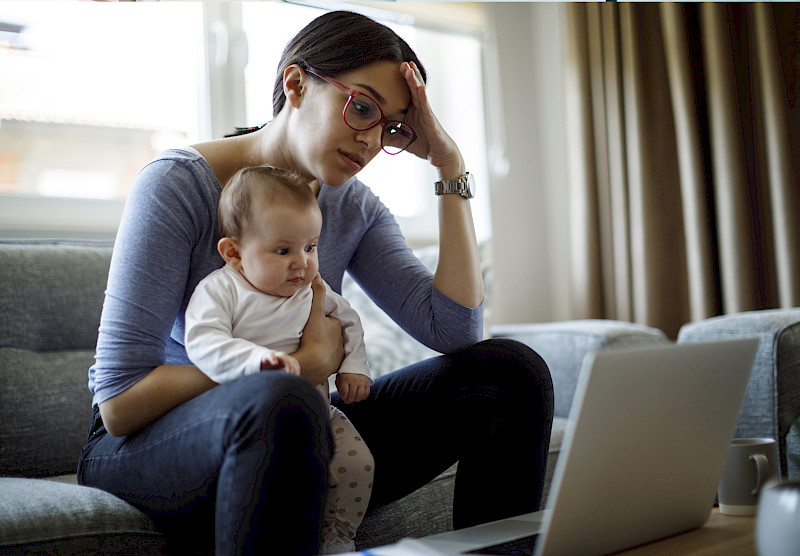The perception of working from home has changed since the coronavirus pandemic – particularly when it comes to productivity. Before COVID-19, most people believed that working from home was less efficient. These days, it is often claimed that home working is even more productive than working in the office. We took a closer look at this and other commonly voiced opinions about working from home.
1. Working from home is more efficient than working in the office
In an April 2020 survey commissioned by the IBA and conducted by forsa, many employees reported that they were able to work more concentratively at home than in the office. Project coordination via web conferences also worked very well, aside from a few technical issues. However, 80% of all employees said they missed their colleagues, and many complained that creative ideas in particular tended to get lost. This was also the conclusion reached back in 2013 by Yahoo’s HR chief Jackie Reses, who at the time banned all employees of the tech company from working from home. Her reasoning: “The best decisions often come from discussions in the corridor or the cafeteria.”

2. Working from home blends private and professional life
It seems logical: parents at home are only a few steps away from the children’s room, and can take care of household, childcare, and work all at once. But anyone who had to juggle both during the spring of 2020 out of necessity can tell you it is not that simple. In our forsa survey, parents of children under the age of 11 were far less enthusiastic about working from home than colleagues without children or with older children. But even for those without children, home working can have its pitfalls. A 2017 study by the International Labour Organization (ILO) found that home workers, due to the overlap between work and leisure spaces, often found it harder to unwind in the evenings than colleagues who worked in an office during the day.

3. Home working is mainly suited to millennials
We all know the cliché of young urban nomads who prefer to work from home, in cafés, or in the park with their laptops. But is it true? In fact, before COVID-19, millennials worked from home far less frequently than older colleagues – and perhaps that was for the best. According to a 2014 US study by Stanford University, people who work regularly from home tend to earn less on average than colleagues who work in the office. Another reason why younger employees should not work exclusively from home comes from an April 2020 study by the US office of the Gensler Research Institute: 50% of millennials reported having difficulty filtering out distractions in the home environment during pandemic-related home working, and 37% found it hard to separate work and personal life. Older employees were much less likely to report such problems.

4. Home working will replace the traditional office
At least in the foreseeable future, this is unlikely to happen. As we have seen, many work processes depend on direct, personal interaction. In fact, employees who wish to work (almost) exclusively from home remain a minority. Only a few can imagine never coming into the office again. That said, the majority of employees would like to work from home more often than they did in the past – and would prefer to decide for themselves when and how often to do so. Whether that will work in practice, or whether arrangements will need to be agreed in advance, remains to be seen.





